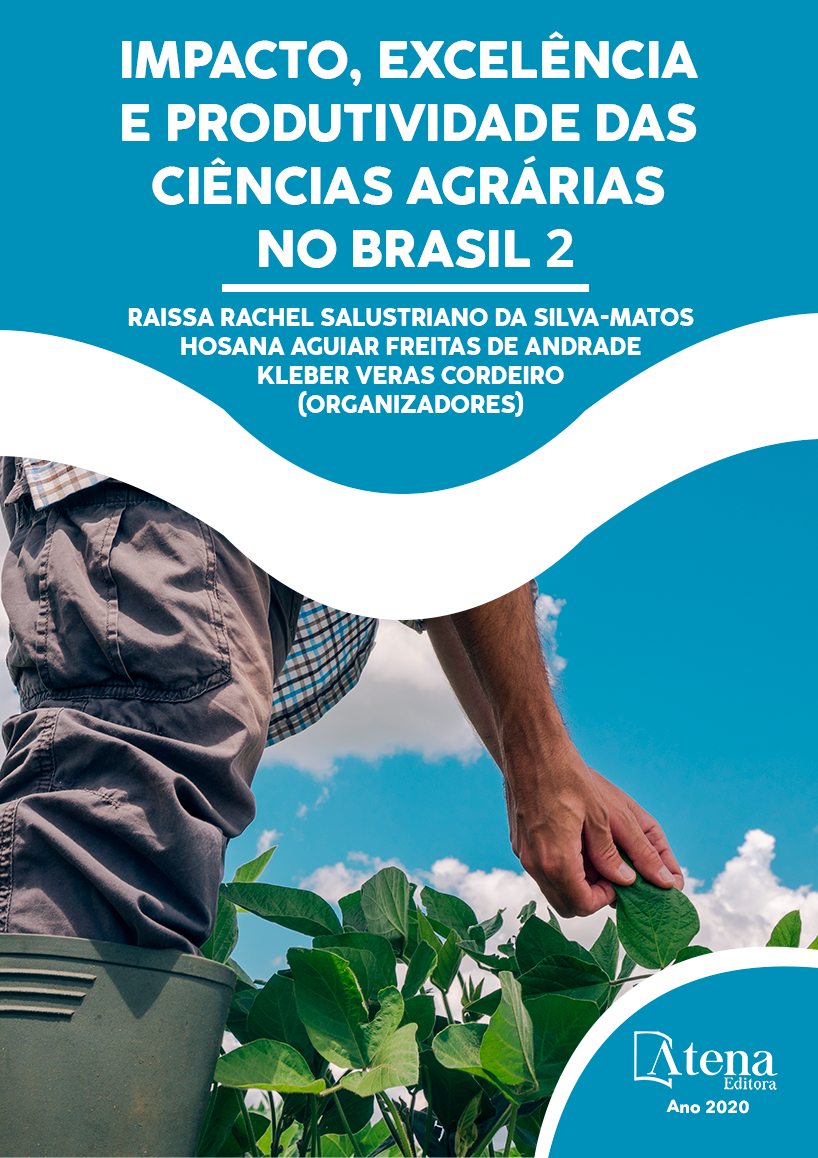
INFLUÊNCIA DO TRATAMENTO COM INSETICIDAS E DO ARMAZENAMENTO NA QUALIDADE DE SEMENTES DE MILHO
O tratamento de sementes com inseticidas tem se mostrado uma boa e eficiente estratégia de controle de pragas iniciais da cultura do milho (Zea mays). No entanto, é preciso conhecer a influência que esses produtos exercem sobre à qualidade fisiológica das sementes tratadas. O objetivo deste trabalho foi avaliar a germinação e vigor das sementes de milho tratadas com inseticidas e armazenadas por diferentes períodos. Sementes do híbrido AG 9000 PRO3 foram tratadas com (1) Tiodicarb + Imidacloprid (CropStar®), (2) Bifentrina + Imidacloprid (Rocks®), (3) Tiametoxam (Cruiser®), (4) Imidacloprid (Much®) e (5) Testemunha sem tratamento, e armazenadas em sacos de papel por 0, 15, 30, 45 e 60 dias após o tratamento. O experimento foi conduzido em DIC com 4 repetições no Laboratório de Sementes da Universidade Federal do Paraná – Setor Palotina. As variáveis analisadas foram: germinação, comprimento de parte aérea, comprimento de raiz e comprimento total. O teste de emergência em campo a campo foi conduzido em propriedade rural situada na Linha Caravaggio, no município de Palotina. Foram utilizadas sementes tratadas com inseticidas adicionadas da testemunha no dia do tratamento, sendo dispostas em blocos casualizados (DBC), com quatro repetições. Foi avaliada a emergência das plântulas no campo, com contagens no 5º e 12º dias após a semeadura (DAS). Todos os tratamentos reduziram significativamente a porcentagem de germinação e comprimento de plântulas nos testes laboratoriais. Essa redução intensifica-se com o prolongamento do período de armazenamento das sementes. No campo, não foram observadas diferenças significativas entre os tratamentos e a testemunha aos 12 dias após a semeadura. O armazenamento de sementes tratadas por logos períodos diminui a qualidade original de sementes de milho.
INFLUÊNCIA DO TRATAMENTO COM INSETICIDAS E DO ARMAZENAMENTO NA QUALIDADE DE SEMENTES DE MILHO
-
DOI: 10.22533/at.ed.7752002045
-
Palavras-chave: Zea mays, Tratamento de sementes, armazenamento
-
Keywords: Zea mays, Seed treatment, storage
-
Abstract:
Seed treatment with insecticides is a good and efficient strategy for initial pests control in corn (Zea mays). However, it is necessary to know the influence of these products on the physiological quality of treated seeds. The goal of this report is investigate the effect of seed treatment with insecticides and storage periods on physiological quality of the corn seeds. Seeds of the hybrid AG 9000 PRO3 were treated with (1) Thiodicarb + Imidacloprid (CropStar®), (2) Bifenthrin + Imidacloprid (Rocks®), (3) Thiamethoxam (Cruiser®), (4) Imidacloprid (Much®) and (5) Control, placed in paper bags and storage for 0, 15, 30, 45 and 60 days after treatment. The experiment was conducted under DIC with 4 replicates in the Laboratory of Seeds / UFPR – Palotina. Seed quality was investigated by estimating germination percentage, shoot length, root length and total length. The emergency test evaluated the germination and emergence of the seedlings in the field. The trial was placed in a rural property located in the Caravaggio Line, in Palotina – Parana in the same day of the treatment with the insecticides. The experiment was arranged in randomized blocks (DBC), with four replications. On the 5th and 12th days after sowing, seedling were counted. All treatments reduced the percentage of germination and seedling length in laboratorial tests. This reduction is intensified with the prolongation of the storage period of the seeds. For the field test, no difference between the insecticides seed treatment and control was detected 12 days after sowing. The storage of treated seeds for long period decrease the original physiological quality of corn seeds.
-
Número de páginas: 15
- Eloisa Viletti Rosso
- Isabela Buttini Vieira
- Aline Marchese


